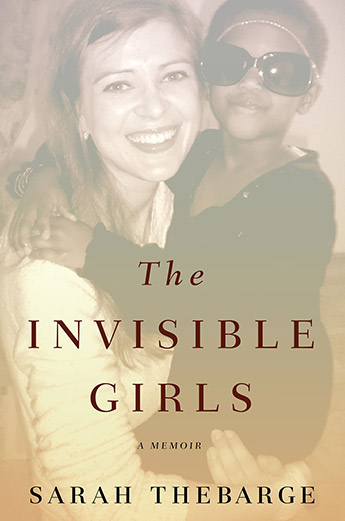in defense of profanity
By my count, my book The Invisible Girls has 3 f-words in 272 pages. And because of that, a well-known Christian radiostation cancelled a radio interview with me last week. I woke up on the morning of the interview to an e-mail from my publisher that the station cancelled because the executive producer read the book and said, “[the profanity] goes against our guidelines for both the broadcast and for listener giveaways.”
And so, because of those three words, thousands of listeners didn't get to hear how God providentially took me when I was a cancer patient and intersected my life with a family of Somali refugees, and used us in each other's lives to bring healing and redemption. And the radio station listeners didn't hear an invitation to buy a copy of the book to support a college fund for those Somali girls.
Seriously? Isn't that kind of missing the forest for the trees?
I knew when I was publishing the book that if I avoided using profanity and specific anatomy words, the book would be more widely distributed and embraced by certain Christian audiences. But I used them anyway -- because they tell a better story than I could tell with pseudo-swear words like “flippin’” or “freakin’”, and because they tell the truth. They’re gritty words that people, like my atheist friend Libby who was dying of terminal lung cancer at age 39, actually said.

It’s unfortunate -- no, tragic -- that some people think being a “Christian” means watching only G-rated movies or reading sappy books where everything turns out okay in the end because God is on our side, and if He’s on our side, everything works out to our advantage and to our satisfaction.
After all, isn’t that how the Bible reads?
Um….not exactly. If you don’t believe me, just ask yourself this question: If you made a movie of the Biblical narrative, what would you have to rate it?
Not G. Not even R. Maybe NC-17 or even X after you filmed all the rape, beheading, crucifixion and infanticide scenes.
And parts of the story would not be feel-good, satisfactory, warm-fuzzy, Disney-like scenes. Adam and Eve were banished from Eden and never got to return. Adam had to pull up thorny weeds without the luxury of gardening gloves, and Eve had to experience epidural-free childbirth, and then their son killed their other son, and then they died -- so it’s hard to say that all things worked out for good in that specific instance.
Moses never got to enter the Promise Land because he screwed up.
Noah preserved humanity by building an ark when no one had seen rain before, which was pretty commendable, but then passed out naked because he was drunk off his arse.
Hosea had to marry a prostitute -- and likely catch and suffer from some gnarly STDs because there were no antibiotics or antivirals to treat diseases like gonorrhea or genital herpes back then.
Fast forward to the next Testament, where, instead of reconciling with the Rabbi he betrayed, Judas hangs himself. Paul suffers from a thorn in the flesh that, no matter how close he is to God and no matter how many miraculous things he does for other people, he cannot cure.
And instead of restoring Ananias and Sapphira, two dedicated church members who lied about how much they were tithing, the congregation watches while God strikes them dead.
I could go on, but I think the above examples are sufficient to show that the story of God is not the airbrushed narrative we make it out to be, and many of the endings, at least on this side of eternity, are pretty unhappy.
The point the Bible makes is not that God makes us perfect people with perfect endings; it’s that in spite of all the chaos, violence, selfishness, destruction and pain, God loves us enough to stay with us and infuse a messy world with some grace and mercy. Instead of making us stumble around in intolerable darkness, He shines a sliver of light that illuminates the pathway to Paradise, though we will surely be bloodied and bruised along the way. And then we’ll have to die to make it across the last threshold.
When we ignore the reality of our story and the role God has in it, we create lousy, sometimes even laughable, “Christian” music, art and writing that is insulting and irrelevant to the rest of the people on the planet, and sets us up as an object for mockery (and no, it’s not persecution, it’s actually well-deserved criticism.)

When Christian creatives think that in order to be an artist who incorporates faith into their work, they have to present a pretty and perfect picture, they miss the entire point.
Being a Christian musician doesn’t mean you get jewels in your crown for writing horribly obvious, inane lyrics just because you added the name “God” somewhere in the song.
Being a Christian painter doesn’t mean that your portraits of people erase their physical imperfections and flaws. It means that, like Rembrandt, you paint the reality of cleavage-revealing clothing and close-set eyes and twisted noses because your faith isn’t demonstrated by erasing reality, but by shining an exquisite light on all the imperfections.
And for me, being a Christian writer doesn’t mean spinning sappy G-rated tales; it means telling an honest account of life, with whatever the literary equivalent of revealing clothing, close-set eyes and twisted noses is -- and then describing the exquisite light of redemption and love that saturates this world. A world that, with all its brokenness, is somehow embraced and sustained by a merciful creator who, through all the unexpected plot twists, is writing the best story of all.